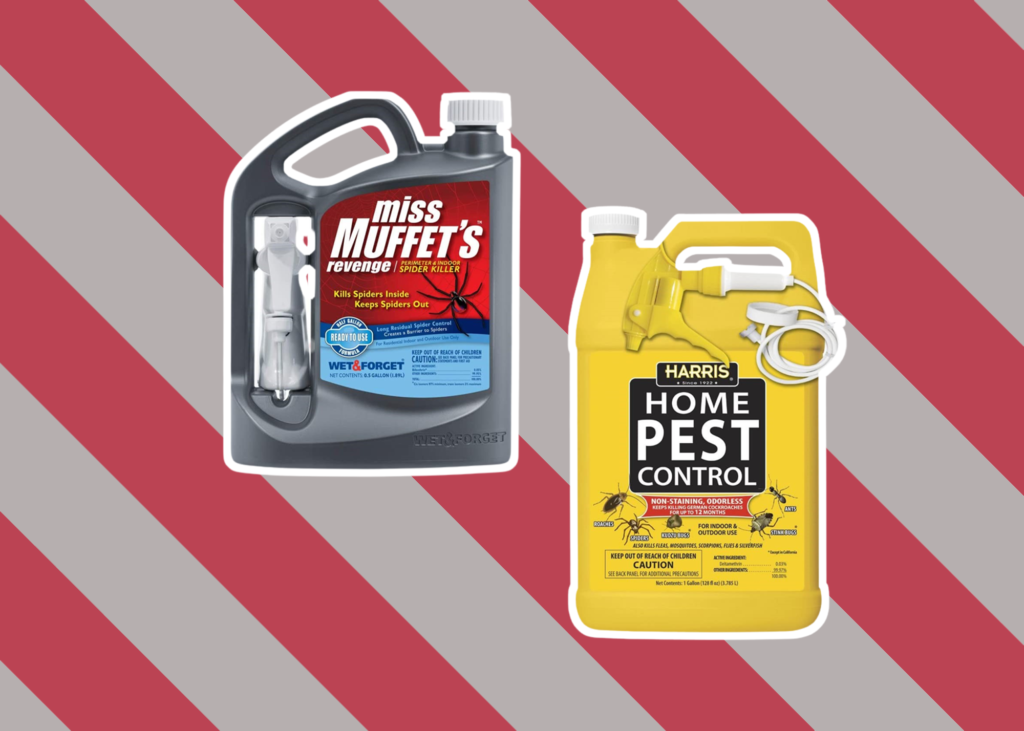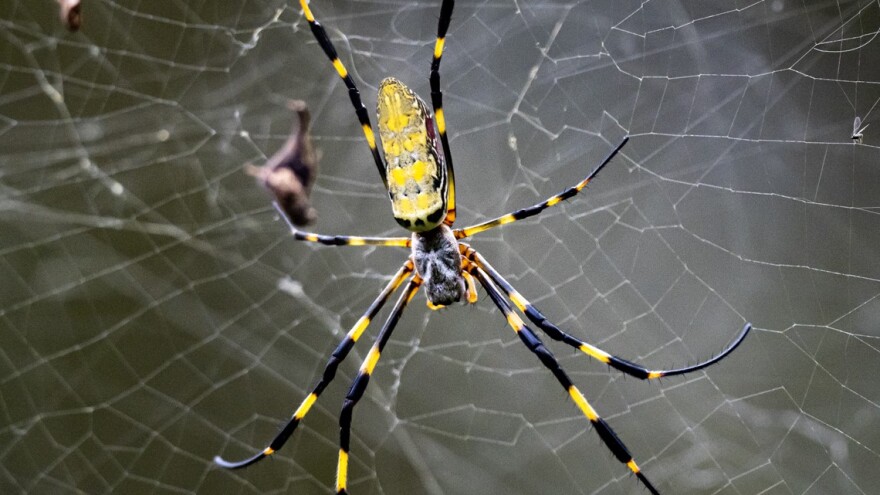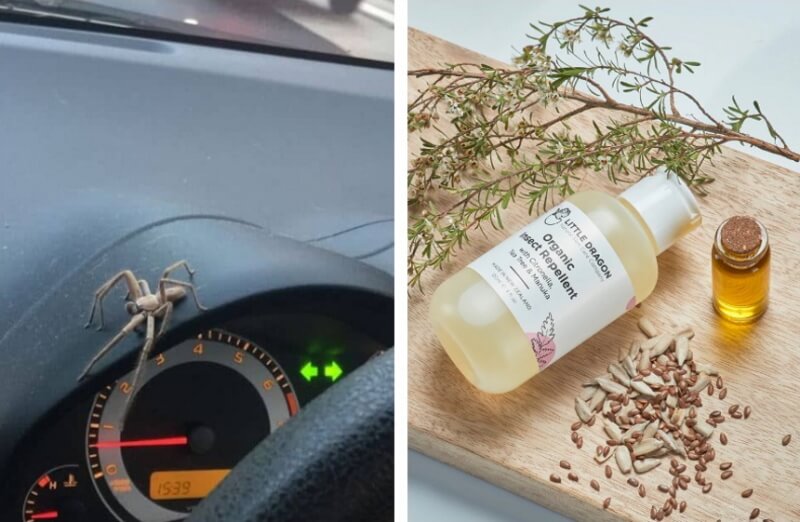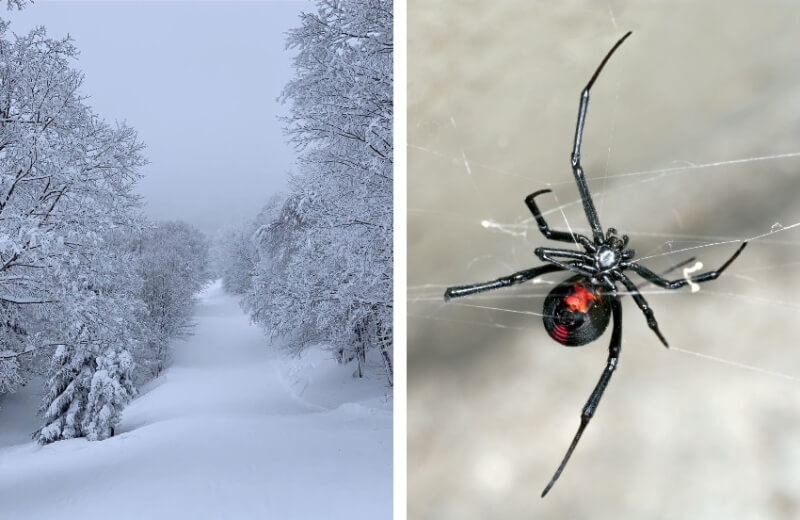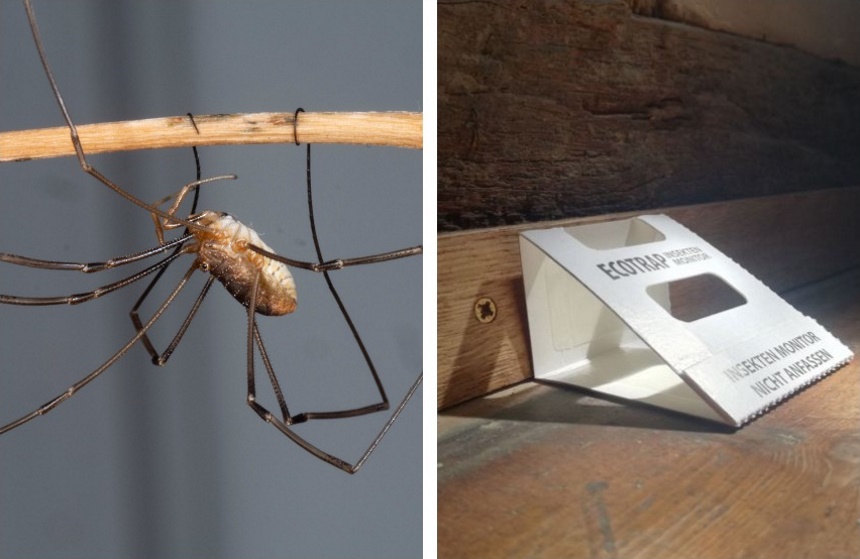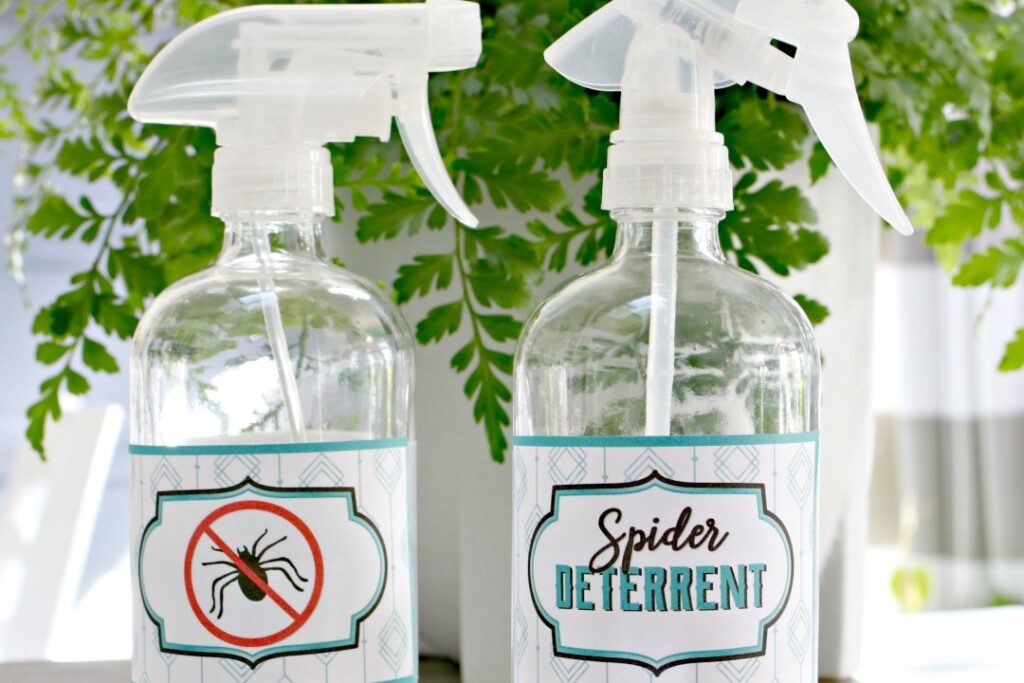

How to get rid of spiders in garage spaces? This is a very common question, these areas are natural homes for spiders that need quiet and undisturbed hunting grounds to thrive. Of course, most people dislike spiders and for good reason. Years of evolution have conditioned us to be wary, because certain spiders are dangerous. The close proximity of the garage to many homes means that they have easy access to the rest of the home too. Spiders can be beneficial to your home because they hunt other insects that can cause problems. But, if you cannot live with spiders or you want to exercise a certain level of control over them this article can help.
Before we learn how to keep spiders out of garage spaces, it’s worth exploring why they like these places. Spiders tend to like dark and dank areas and it’s no coincidence that these places are attractive for insects and other pests that are their natural prey. This urge to seek out garages only increases when the weather turns colder outdoors. At this time, many pregnant spiders are looking for a warm and dry spot to lay their eggs before spring arrives.
When you start to find more spider nests in the garage, this is probably an indication that the pests are a little out of control. Spiders will go where the food is and they hunt flies, moths and other insects that gravitate to garages and other similar locations. We can use this knowledge to our advantage when we want to reduce the numbers of spiders in our garages. The best deterrent is an uncluttered garage with less dust and debris. Spring cleaning and maintaining a tidy garage is the best way to keep flies and other spider prey away from the area. Flies and other insects are attracted to food debris and garbage and it’s important to clean these attractors away to make the garage less attractive.
When they need to learn how to get rid of spiders in the garage, Florida residents and people in other states with potentially dangerous arachnids need to take extra care. There are more than 3,500 identified spider species in the U.S and it’s likely that the true number is much higher. Learn every spider species is far beyond the scope of this article, but there we can take a look at five common spider species that you may encounter:
These are larger spiders; they are very hairy and their eyesight is incredible. Wolf spiders are agile hunters, they don’t construct webs to catch their prey, they stalk and kill them. These spiders tend to be found on the ground and they can make their home in underground burrows. They are a venomous species, but the symptoms for humans tend to be mild unless an allergic reaction occurs.
This one of the largest family of spiders in the world, the term encompasses around 13% of all known spider species. Jumping spiders tend to be short and sturdy and they move slowly when they walk. But as the name suggests, these spiders are extremely agile and they can jump up to 10 or even 50 times of their body length with ease. This makes jumping spiders exceptional hunters and they don’t make webs to catch their prey.
The first two pairs of this spider’s legs extend out from the side of its body and they are longer than the legs at the rear. This gives the spider a very distinctive appearance and those over-sized front legs are ideal for hunting. Crab spiders are ambush predators, they don’t make webs, they can wait for days or weeks to catch their prey.
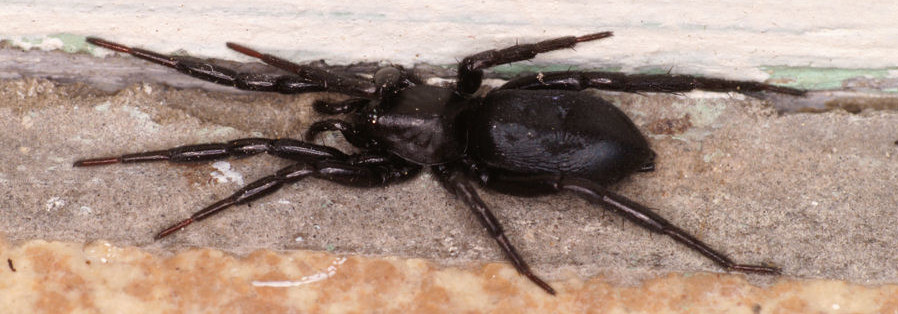
These spiders live in gardens around and under piles of wood, timber, leaves and other organic areas. But, their populations tend to increase during the fall and they come indoors to seek warmer and drier conditions. This can lead to an unexpected infestation in the garage and other areas of the home.
Many people want to know how they can keep the spiders out of their homes and garages. There are many potential solutions and some tend to work better than others. Some of the more effective natural spider repellent options to try may surprise you. But, in many cases it’s easier to choose a store bought product with proven effectiveness. It may be possible to deter spiders with a clean and well organized garage interior. However, regular cleaning and removing clutter may not be enough and it’s natural to explore options that cost less than hiring an exterminator. Let’s take a look at ten ways to get rid of spiders in your garage:
Most people use their garage as extra storage space for their homes which is understandable because it’s secure and easy to access. But, if the garage becomes dirty, disorganized and the clutter gets out of control, it will attract insects and spiders that hunt them. There are numerous hiding places for them and they can live out their entire lives in peace unless you carry out some spring cleaning!
The best way to limit the potential for spiders and insects is to limit the clutter to the absolute bare minimum. Take some time to go through the stored items and if you can live without them, maybe it’s time for a yard sale.
Thorough cleaning may be one of the last things that people think about when they are organizing their garage. But, this is a crucial step. When we move and reorganize our storage solutions, we tend to move a lot of dust into the atmosphere. This makes the garage even dustier and dirtier and making the effort to vacuum, sweep, clean and mop makes all the difference. This is equally true when you want to know how to get spiders out of your car because trash and food debris attracts insects that attract spiders. Regular car vacuuming in the cracks and crevices of the car is important and this is especially true if you have a spider infestation in the garage where the vehicle is stored.
When people clean their garages, they tend to notice the cobwebs only. As we saw from the description of common spiders above, many spiders that take up residence in the garage don’t even make webs. So, look out for other indicators, such as: dead insects, feces and egg sacs that spiders may leave in dark corners. Like any living creature, spiders want an easy life, they don’t want to build things and have them torn down regularly. If you do find webs or other areas where spiders reside clean them thoroughly and this can be an effective deterrent. Any egg sacs should be removed outdoors to prevent an increase in the spider population. Spider poop looks like an ink stain and cleaning those areas with bleach will prevent the transmission of diseases.
Some of the best outdoor spider sprays are made with peppermint and they work indoors too. Peppermint essential oil will kill spiders, they will avoid areas where it’s sprayed and they may even vacate the garage entirely. As an added bonus, peppermint oil is an effective remedy and deterrent for nuisance insects, including: ants, yellow jackets, cockroaches and more.
You can make your own peppermint repellent at home and spray it in areas where you have a spider infestation. Simply add five drops of essential peppermint oil and dish soap to two cups of water and place the solution in a clean spray bottle. Shake the bottle well before each application to mix the ingredients and spray as needed. The best places to start are those dark neglected corners where spiders and other insects tend to hide. All entry points into rooms such as crevices, baseboards, window sills and crawl spaces can be sprayed. There is no need to clean the spray after use, simply leave it to dry and it will evaporate naturally leaving a peppermint odor behind.
In the modern world, we have justifiable concerns about the proliferation of plastic use in our societies. This is understandable, but when you need to store items in your garage it’s a great idea to use plastic boxes and throw away the cardboard. Cardboard boxes are an ideal habitat for spiders and other insects because they have a lot of openings and areas to hide in.
Investing in some plastic storage bins with tops that can be sealed will keep your stored items clean and safe. If they are made from clear plastic you can see the contents without removing the lid which is convenient. But, the main reason is that spiders cannot access plastic bins easily and the surfaces don’t degrade over time to make this a possibility.
Many people start their search for the best foggers for spiders without considering other obvious solutions first. An extreme spider infestation may necessitate the use of such drastic measures, but in many cases you can make a real difference if the food sources are eliminated. Attracting bugs to the home with nightlights and easy to access trash containers will cause problems. Insects, such as: ants, flies, wasps and others are a common problem in many homes and they are a food source for spiders. When you remove these bugs, the spiders are less attracted to your home and they will hunt for food elsewhere. Glue traps, insect repellents and bug bombs can help if you have a significant insect infestation.
Most spiders are smaller, but we allow them to enter our living spaces and garages. This may seem strange, but it is possible to spider-proof your home to deny them entry. Tiny holes in the roof and walls of the garage should be sealed with caulk or a specialized paste that contains permethrin powder and petroleum jelly. These products are easy to source at your local hardware store and they are very effective. Protective screens should be placed over the doors and windows to deny entry to spiders and other pests. These measures can be supplemented with flypaper and sticky paper coated with poisons if you have a serious infestation.
When winter arrives, placing firewood on a fire is an extremely satisfying and warming experience. But, wood piles are prime hiding spots for spiders and other insects and bringing the logs indoors is inviting them into your home. Some people store their firewood in the garage and a large number of spiders can take up residence there. The best solution is to store the firewood in an airtight sealed bin which denies them entry. As an added bonus, this will keep the wood dry and it may burn better when you need it most.
Adopting a pet is a serious commitment that should not be undertaken lightly. But, if you’re considering a new pet for your home, it’s interesting to note that they can be natural predators for spiders and nuisance insects. Aside from a cat or dog swallowing the occasional spider, there are three main groups of pets that you may want to consider for your home:
Birds
Many birds feed on spiders and insects, but they won’t tangle with larger species. Of course, this will largely be determined by the opportunities that the bird has to hunt. If the bird is allowed to fly and range throughout the home, they will eat spiders. But, if the bird is very small, it can become tangled in larger webs and the largest spiders are known to eat small birds.
Lizards
The two most common lizard pets are chameleons and geckos and they hunt spiders in nature. In fact, these lizards eat spiders as their primary source of protein and they are efficient hunters. In a confined area, such as your sealed garage they may eliminate most if not all the spiders present. As an added bonus, you get to hang out with a cool lizard buddy at the same time.
Spiders
If you are fond of arachnids, but you don’t like the smaller ones hiding in your own home you can fight fire with fire. Some spiders make good pets and they will eat other species that can present a threat to humans.
When you have tried multiple ways to deal with a spider infestation and they have failed, it may be time to consider a chemical solution. A product such as Wet & Forget 803064 Spider Killer can be sprayed across the floor, walls, windows and other locations where you have seen spiders. This is a more serious option than the aforementioned peppermint spray that you can make at home and it should be considered a last resort. When you use these chemical products, follow the instructions carefully and limit the use to areas where kids and pets are restricted.
Setting up stick traps to capture the legs of spiders and other insects is a tried and tested approach. These traps are readily available at any convenience or hardware store and they are easy to make at home. Simply cover a flat piece of cardboard with double-sided sticky tape and you’re done.
To lure the spider into your trap, set up a convenient water source because they need to drink regularly. A small bottle cap filled with clean water next to the trap should be a sufficient lure for a thirsty spider.
Dealing with a spider infestation can have negative consequences for people that have allergic reactions to spiders, dust and other contaminants in the garage. But, the stakes are much higher if there are venomous spiders present and extra care should be exercised to stay safe. If you are not confident or unsure about dealing with venomous spiders it’s time to contact a pest control professional. If you’re determined to continue there are three proven approaches to try:
We’ve already covered these, glue traps are effective and there is no need to come into direct contact with a venomous spider. But, they should be kept away from curious kids and pets because a trapped spider can still be dangerous.
A store bought spray insecticide is designed to be sprayed along the baseboards, under the furniture and in the corners of the home or garage. They form a formidable chemical barrier that will kill or repel the spiders. But, these products do contain harmful chemicals and toxins that should be kept away from kids and pets. Always follow the instructions for these types of products carefully to avoid creating an unsafe situation.
Many people don’t want to kill spiders unless it’s absolutely necessary and they prefer to catch them and release them outdoors. Covering the spider with a glass and slipping some card under is fine if you’re dealing with a smaller non-venomous spider. But, to limit contact and put a more dangerous spider at arm’s length it’s a better idea to use a spider catcher. This hand operated tool is easy to use and they can be found at most home or hardware stores. A spider catcher will work well with the homemade peppermint spray mentioned earlier in this article. The spray can force the spider out into the open without hurting it and then the spider catcher is used to capture it.
As you can see, it is possible to prevent or control a spider infestation before it gets out of hand. It’s a good idea to adopt a proactive approach to make the garage a less attractive place for spiders and the insects that they feed on. Maintaining a clean and tidy garage and updating the storage to limit places to hide is a sound strategy. Deterring or eliminating the insects and/or spiders with one of the aforementioned methods should be effective for most species. Now that you know how to get rid of spiders in garage spaces and the home it’s time to put those ideas into practice. If you try an approach that doesn’t work, switch to another or hire a pest control specialist.
